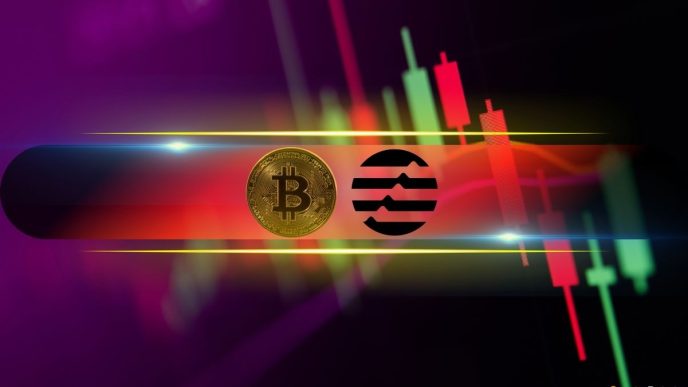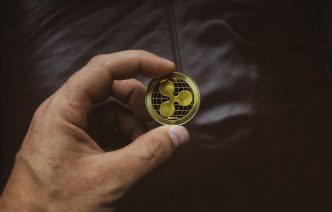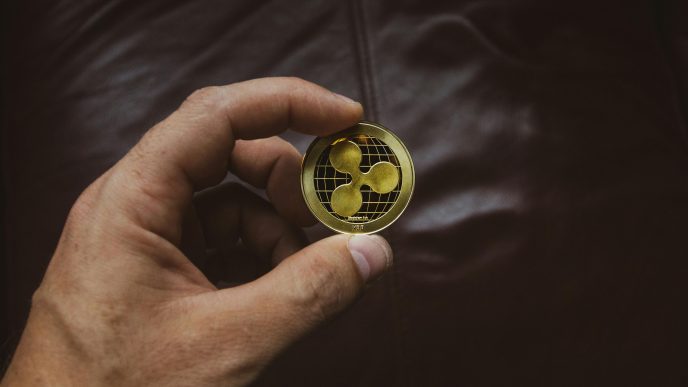South Korean lawmakers have opened an investigation against Upbit, the largest exchange in Korea. The investigation is centered on the monopoly structure of the virtual asset market built around the trading platform.
Upbit is a South Korean cryptocurrency exchange and the largest in the South Asian region in terms of trading volume. The platform is very popular among Korean traders, who have long been associated with pump-and-dump schemes, especially when trading altcoins.
South Korea Opens Antitrust Investigation Into Upbit’s Market Power
Kim Byung-hwan, who chairs South Korea’s Financial Services Commission, said he would investigate the monopoly structure of the virtual asset market centered on Upbit. He committed on Thursday, October 10, during the country’s National Assembly State Affairs Committee audit. This was in response to remarks from Democratic Party of Korea lawmaker Lee Kang-il.
“Upbit, the largest virtual asset exchange in Korea, is second in the world…the phenomenon of excessive concentration in one company and Upbit’s monopoly began after the business partnership with K Bank,” local media reported, citing Lee Kang-il.
According to Lee Kang-il, Upbit’s deposits take up a significant portion of K Bank’s deposits. This is an online bank based in South Korea. Notably, the bank is planning to go public on October 30.
Reuters reported that the Initial Public Offering (IPO) would raise up to 984 billion won or $731.64 million. If it happens, it would be one of the biggest stock market debuts in 2024.
“Out of K Bank’s 22 trillion won in deposits, Upbit deposits account for 4 trillion won, or 20%…If Upbit transactions are cut off, a bank run on K Bank will occur. ” Lee Kang-il added.
Read more: 17 Best No KYC Crypto Exchanges: Top Choices in 2024
Lee Kang-il criticized K Bank for offering 2.1% interest on Upbit customers’ deposits, calling it unreasonable given the bank’s operating profit margin of less than 1%. He also raised concerns about the relationship between Upbit and K Bank, arguing that it contradicts the principle of separating finance and industry.
Based on these advances, South Korea’s Financial Services Commission Kim Byung-hwan noted that the K-Bank listing has been reviewed comprehensively. Nevertheless, he committed to reviewing the matter further via the full force of the country’s Virtual Asset Committee.
Probing The Popularity of Upbit Trading
This is not the first time Upbit has taken the spotlight. Besides lawmakers, traders and investors in the global crypto market operate with knowledge of suspicious activities on the largest exchange in Korea. The region’s traders are infamous for pump-and-dump schemes, especially for dead projects, and they stealthily select assets carefully.
“Upbit N01 bag is not Bitcoin, Ethereum or Stablecoins…They specialize in pumping dead projects,” Marius Ekwebelem, founder of blockchain firm Altbri, noted.
Exchange users frequently liquidate contracts for differences (CFDs), accelerating the rise or fall of an asset, which creates a snowball effect. In this strategy, leveraged derivatives dump shares at the opening price if deposits drop below a certain threshold.
Some traders take it further by using matched orders, where brokers sell an asset to another broker at a pre-set time and price. Although it appears like a standard trade, this method artificially injects volatility into the asset, allowing the trader to profit with sufficient capital.
Traders often recruit “investors” to increase their funding, many of whom are high-net-worth individuals like celebrities. These traders gradually inflate asset prices through matched orders and avoid detection by executing trades in different locations and using varying IP addresses.
As trading volume and profits rise, more unsuspecting investors join in, entrusting their funds to the group. This influx further attracts retail traders, driven by FOMO (fear of missing out).
CryptoQuant CEO Ki Young Ju confirmed that Korean traders like pumping and dumping altcoins, seen with exaggerated spot volumes. He attributes this liking to very strict capital controls in the country, sometimes with government officials involved.
“It happens because South Korea has very strict capital controls, blocking arbitrage opportunities between global exchanges. Korean gov’t is going to make this problem even worse with the travel rule solution, which makes Korean exchanges even more isolated,” Ki Young Ju explained.
Read more: Crypto Regulation: What Are the Benefits and Drawbacks?
Nevertheless, Ki Young Ju observed that the pump-and-dump schemes are more pronounced when top Korean exchanges suspend withdrawals. In addition, traders tend to exploit the Kimchi premium, a price gap between South Korean and overseas exchanges. These reasons explain the popularity and, therefore, monopoly of Upbit exchange.
Disclaimer
In adherence to the Trust Project guidelines, BeInCrypto is committed to unbiased, transparent reporting. This news article aims to provide accurate, timely information. However, readers are advised to verify facts independently and consult with a professional before making any decisions based on this content. Please note that our Terms and Conditions, Privacy Policy, and Disclaimers have been updated.
Source link
Lockridge Okoth
https://beincrypto.com/south-korea-investigates-upbit/
2024-10-10 07:36:09














